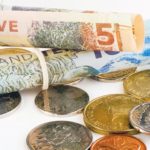The greenback advanced to the strongest level in five years against the yen on Friday amid speculations for Fed tapering as early as next week.
Having hit a session high at 103.92 at 05:15 GMT, the strongest level since October 2008, USD/JPY closed at 103.22 on Friday, losing 0.15% on a daily basis. However, USD/JPY cross settled the week 0.36% higher, marking a seventh consecutive week of gains. Support was likely to be received at December 12th low, 102.47, while resistance was to be encountered at October 6th high 2008 high, 104.65.
Bets for a small reduction in the pace of the Feds stimulus program, worth $85 billion in monthly asset purchases increased after stronger-than-expected US retail sales data for November was released. This added to the sentiment that the US economic recovery is deepening.
On Thursday, the Commerce Department reported that retail sales rose solidly in November as Americans purchased automobiles and a range of other goods. Retail sales rose by 0.7% last month, beating analysts’ projections for a 0.6% gain, while October’s reading received an upward revision to 0.6% from initially estimated at 0.4%. The upbeat general indicator was lifted by a 1.8% jump in sales at auto and parts dealers, which offset a 1.1% decline in fuel prices.
Retail sales less autos, which exclude the volatile automobile sales, rose by 0.4% from an upwardly revised 0.5% a month earlier, exceeding expectations of a 0.2% advance.
Core retail sales, which exclude automobiles, food services, gasoline and building materials and correspond more closely to the consumer spending component of GDP jumped by 0.5% after advancing 0.7% in October.
On Friday, the U.S Bureau of Labor Statistics released a report that showed the producer price inflation in November fell by seasonally adjusted 0.1% in line with expectations. Prices of finished goods declined 0.2% in October and 0.1% in September. On an unadjusted basis, the PPI rose 0.7% in November during the 12 months through November, short of analysts’ projections of a 0.8% increase. In October the PPI increased 0.3% compared to the same month a year ago.
Demand for the greenback was further supported by speculations that an agreement on a two-year US budget deal could prompt the Fed to taper its stimulus program, which tends to devalue the US dollar. Central bankers are set to reconvene next week. According to 34% of economists, participated in a Bloomberg survey on December 6th, the FOMC may begin to scale back its 85-billion-USD monthly asset purchases at the committee’s policy meeting on December 17th-18th rather than wait until January or March.
Meanwhile, on Wednesday, the Japanese Cabinet Office released a report on Core Machinery Orders, showing that the Japanese machinery industry is expanding at a faster-than-expected pace. Machinery orders grew by 0.6% in October, compared to 2.1% decline in September. Analysts’ median forecasts were predicting a 0.7% increase this month. Core Machinery Orders rose by an annualized 17.8% in October from 11.4% gain in September. Analysts’ projections pointed to a 15.1% increase.
On Friday, according to Bloomberg Bond Trader Prices, the 10-year Treasury yield was little changed at 2.88% from Thursday, when it rose two basis points, while the premium yield over equivalent Japanese government bonds was 2.18 percentage points, close to the 2-1/2-year high of 2.24 percentage points touched on December 5th.
In a Financial times’ interview, BoJ Governor Haruhiko Kuroda said that the central bank will strive to keep ultra-easy monetary policy even beyond the time-frame of two years.
Japan is in a process of recovery after the 15-year period of deflation. Bank of Japan has been purchasing more than 7 trillion JPY (68.4 billion USD) of government bonds each month in its struggle to achieve 2% inflation in two years since April. There are growing that BoJ will have to increase the amount of its asset-purchase program in the coming year, which puts heavy pressure on the yen. Next policy meeting of the BoJ will be held on December 19th-20th.
“The prospect of Fed tapering, either sooner or later, and continued monetary easing by the Bank of Japan remain a powerful driver of dollar-yen gains specifically, and obviously broad yen trade-weighted depreciation,” said Callum Henderson, global head of currency research at Standard Chartered Plc in Singapore, cited by Bloomberg.
According to Standard Chartered, the yen will drop to 110 per dollar at the end of next year, while the median analysts’ forecast in a Bloomberg survey projects the yen to drop to 108.
The Japanese currency is the worst performer among 10 developed-nation currencies tracked by Bloomberg Correlation-Weighted Indexes. The yen had weakened 15% so far this year, while the greenback had appreciated 4%.
During the upcoming week market players’attention will be focused on the outcome of Federal Reserve Bank’s two-day meeting on policy and the press conference with bank’s Chairman Ben Bernanke.
USD/JPY cross may be influenced by a number of reports, scheduled for publication during next week, as follows:
On Monday (December 16th) the United States will release a report on industrial production for November, accompanied by the results of a survey encompassing manufacturers in the region of New York for December. The same day Markit Economics will publish the preliminary value of its manufacturing PMI for December.
Japan will report its Tankan summary for Large Non-manufacturing Enterprises and Tankan summary for Large Non-manufacturing Enterprises for the fourth quarter.
On Tuesday (December 17th) the United States will produce a report on the index of consumer prices for November, accompanied by data regarding nation’s current account during the third quarter of the year.
On Wednesday (December 18th) the United States will publish a report on housing starts for September, October and November, accompanied by data on building permits for November.
At 19:00 GMT the Federal Open Market Committee (FOMC) will announce its decision on borrowing costs and monthly pace of monetary stimulus along with a rate statement, which underscores economic conditions and factors influencing the monetary policy decision. Interest rate decision is to be followed by a press conference with Fed Chairman Ben Bernanke.
Japan will report its unadjusted and seasonally adjusted Trade balance for November.
On Thursday (December 19th) the United States will release its weekly report on initial jobless claims, followed by data on existing home sales for November. In addition, the Federal Reserve will report on the results of a business survey, encompassing manufacturers in the region of Philadelphia during December.
Japan will release data on All Industries Activity Index for October.
On Friday (December 20th) the United States will report on the final value of its Gross Domestic Product for Q3.
In Japan, the BoJ is expected to make a statement on its monetary policy, followed by a statement of the Governor of BoJ, Haruhiko Kuroda.





